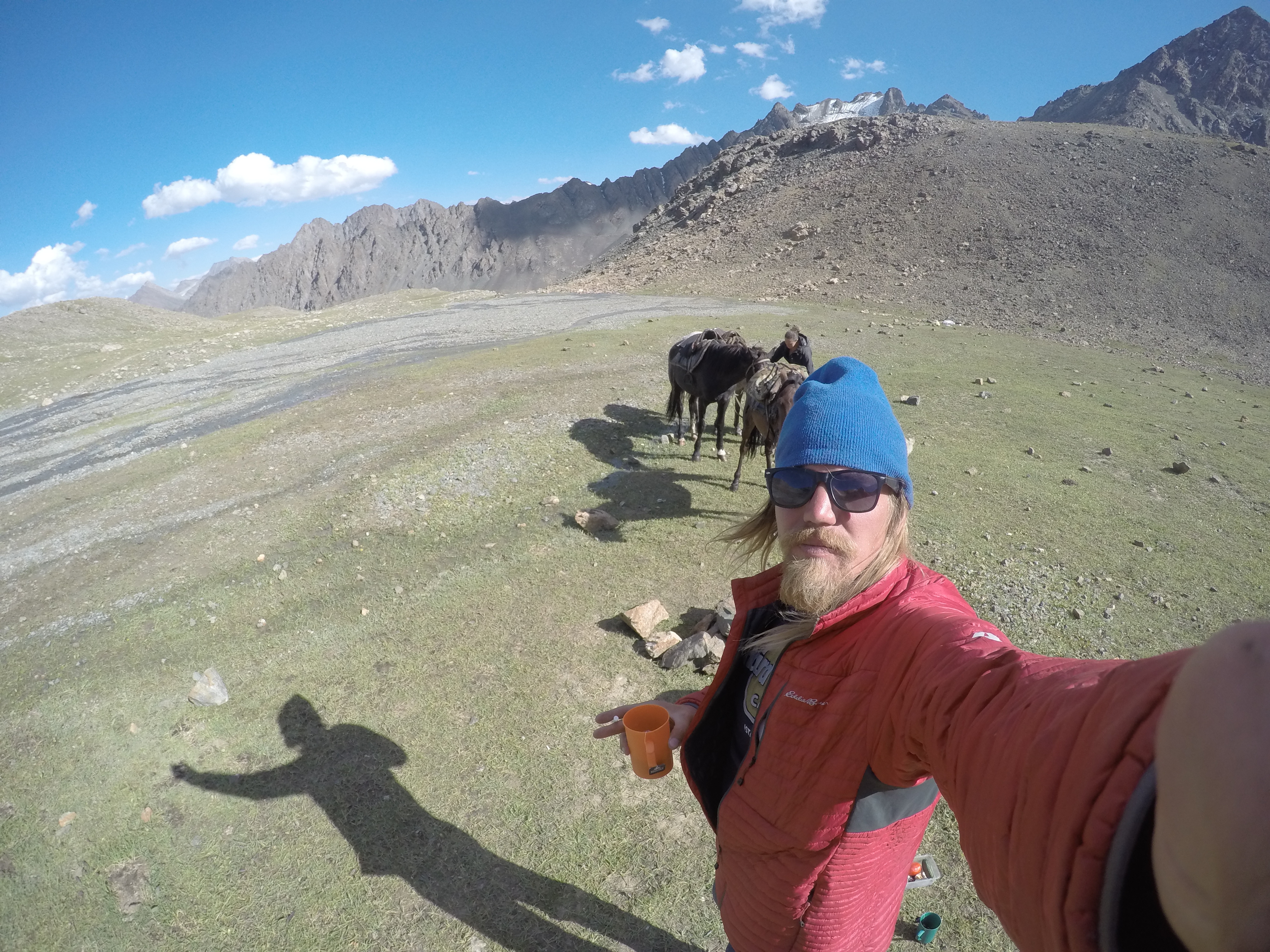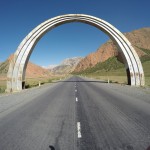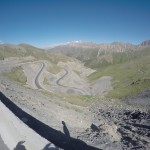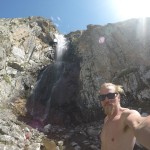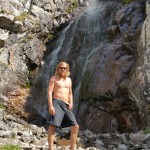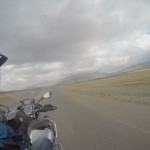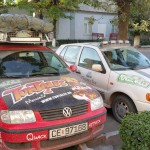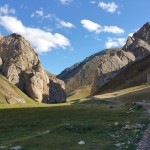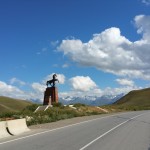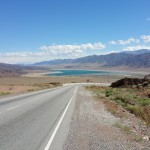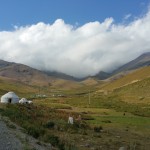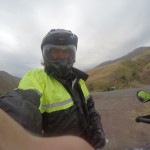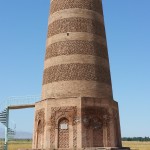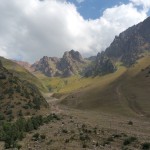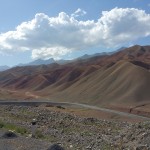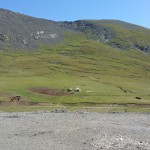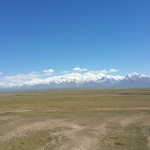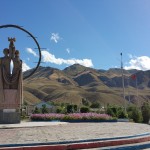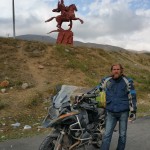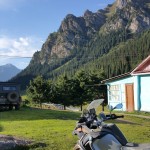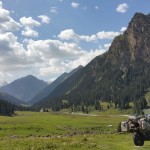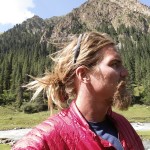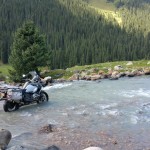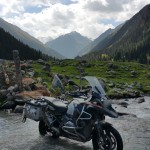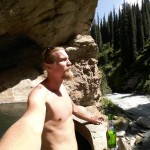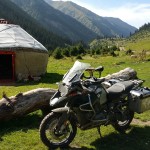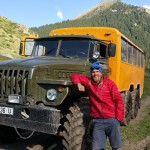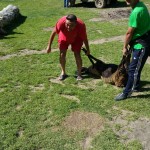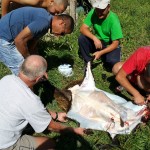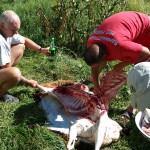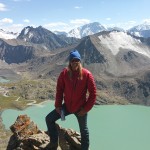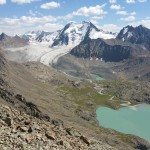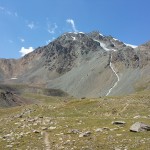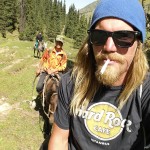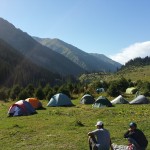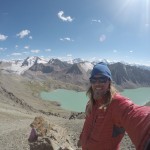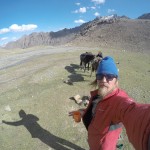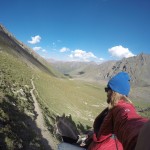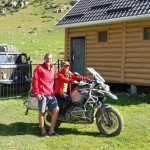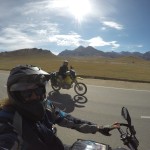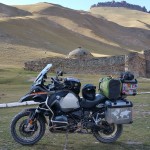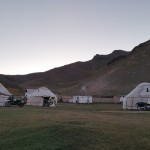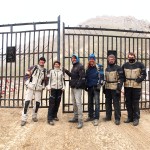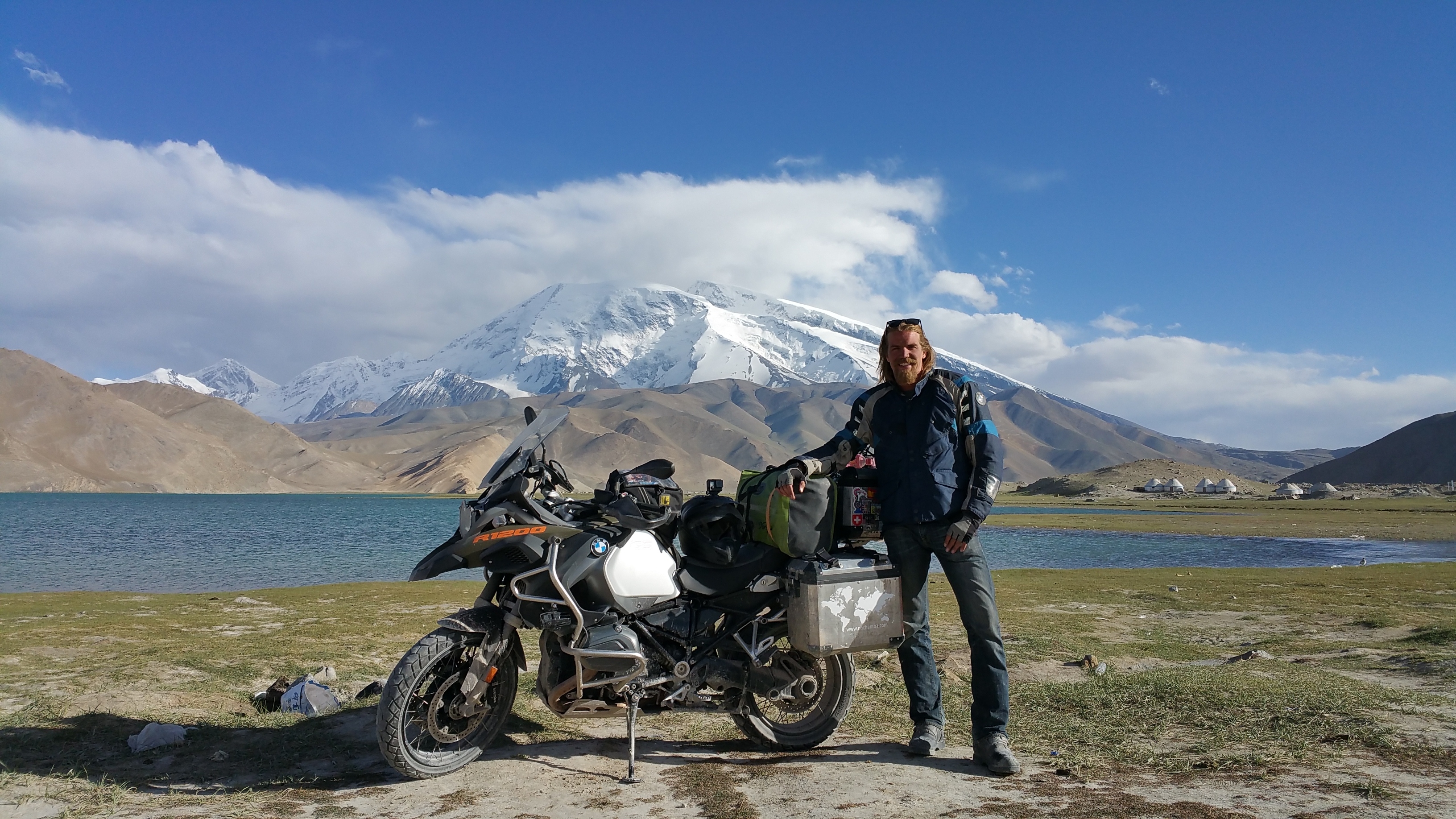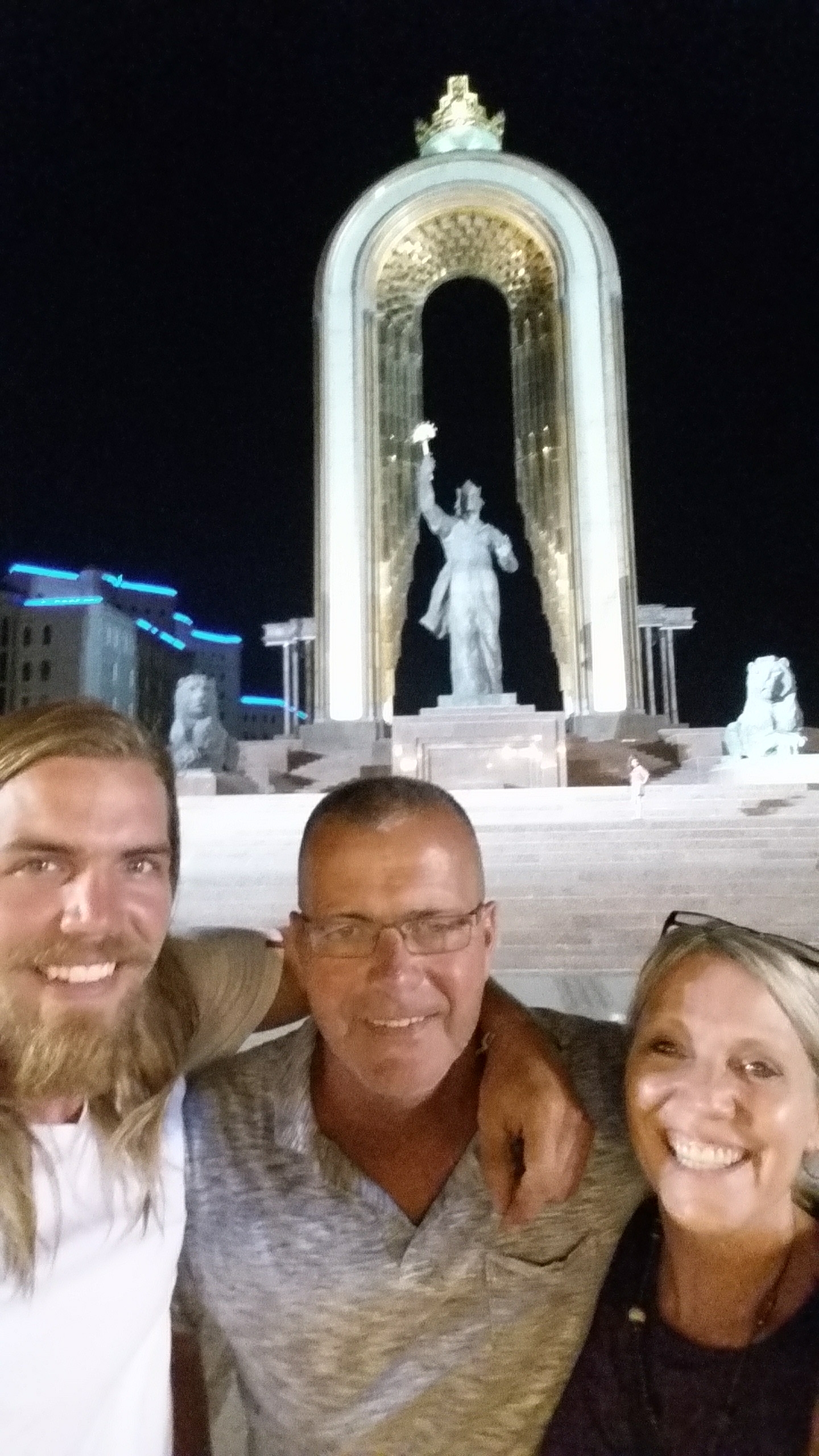Although Tajikistan and Kyrgyzstan or only separated by a border fence, it seems like they are two completely different worlds. One of the first things you will notice is the conditions of the road. They are 100 times nicer once you cross the border! It’s so much more enjoyable being on a consistently good road because it gives me the opportunity to look and enjoy more things as I drive. And maybe that’s one of the reasons I didn’t enjoy Tajikistan all that much, because that was hard! That was ruged, it seemed like it was so much more of a struggle to get gas, find food and water and find a place to stay. Kyrgyzstan I rolled up to the first town, they had plenty of little markets, gas stations and places to stay. Not to mention the scenery changed as well. It’s much greener with rolling hills and beautiful snowcapped peaks in the distance.
The stops in Kyrgyzstan were Osh, Bishkek, Lake Izzy Kul, and some hot springs called Altyn Arashan. The road to the hot spring was only about 12km(7.5mi) but it took me almost 3 hours to make it up! Reading about the ride up there it was described as one of the most un-drivable roads in the world. I thought “how hard can this be? I’ve already been on some crazy roads”. I was wrong, really wrong. It was mentally and physically demanding because of the massive boulders and sheer drop-offs into the river below. Once I arrived, I stayed for 5 days because I wasn’t ready to go back down that road! It was totally worth it though. They had covered huts with hot springs but they also had pools built into the sides of cliffs where you could soak in the pools and the sun all afternoon. The food was great and it was fun hanging out at the camp as everyday anywhere from 5 to 20 trekkers would pass through on their way out of the mountains. You hear some crazy stories just being there.
Osh and Bishkek were nice places to visit and they do have a lot of historical sites around the cities but I’m glad I spent most of my time near Lake Izzy Kul.
- Good Roads in Kyrgyz~
- Mongol Rally Cars
- Circumference of the Earth…. on my motorcycle!
- Heading deep into the storm
- Post storm
- In the hot springs
- Getting ready for dinner
- Getting ready for dinner
- Horse back tour
- China group meeting up
- Dr. Kiki from France… I got some stories about this guy.
- Getting ready to head into China with the group!
